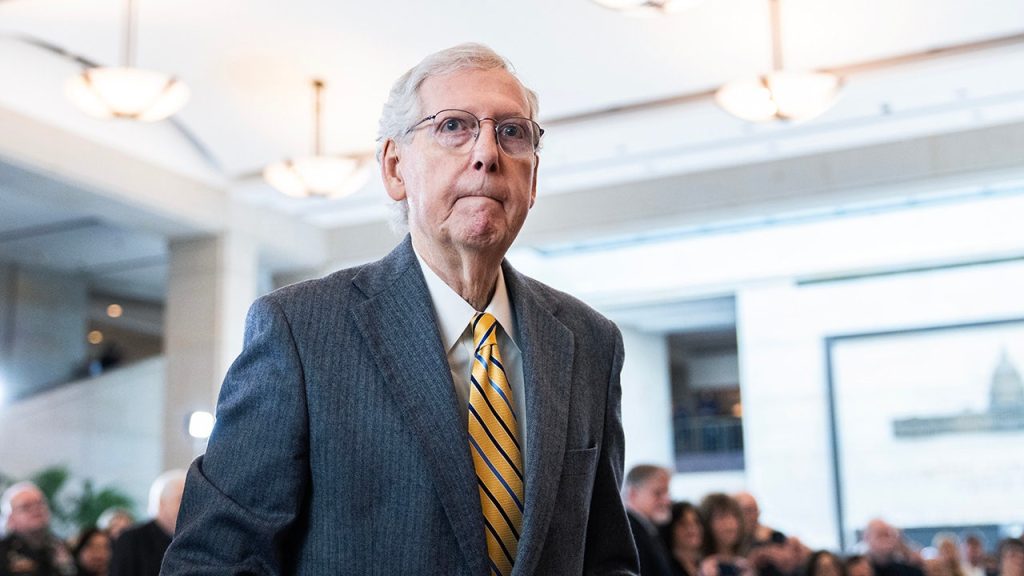Senate Minority Leader Mitch McConnell is focusing on opposing Russia in Ukraine as his main priority in the coming years, calling it a worldwide issue for democracies. Despite not seeking a Senate leadership role again, McConnell plans to continue fighting against isolationist movements in his party and others, citing the importance of supporting Ukraine. He believes global democracy is at risk due to terrorist threats, power competition from Russia and China, and the need for unity among democratic nations.
McConnell views his fellow Kentucky Senator Rand Paul as an isolationist due to Paul’s belief that the United States has no national security interest in Ukraine. McConnell argues that if Russia takes Ukraine, a NATO country could be next, drawing the U.S. into a larger conflict. He emphasizes the importance of supporting Ukraine in order to prevent further aggression from Russia, and to maintain the unity of the democratic world. McConnell plans to focus on the isolationist issue within his party and work towards gaining the majority in the Senate.
As the host asked McConnell about the end of the Ukraine battle, McConnell stressed the significance of the current situation, likening it to the period after the fall of the Berlin Wall. He acknowledges historical examples of reluctance towards intervention, citing Republican opposition to Lend-Lease prior to World War II. McConnell highlights the need for continued support for Ukraine and democratic values in the face of global threats and challenges.
In a shift from his previous focus on domestic issues, McConnell is now prioritizing opposition to Russia in Ukraine as a key aspect of his agenda. He criticizes the Biden administration’s decision to withdraw from Afghanistan, which he believes sends a signal to Putin, but recognizes the efforts of European allies in supporting Ukraine. McConnell emphasizes the importance of investing in rebuilding the industrial base in the country to address national security concerns related to Russia and China, positioning himself as a vocal advocate for the international community’s support for Ukraine.
McConnell’s endorsement of Trump after his Super Tuesday results suggests a willingness to align with the former president on key issues, demonstrating a pragmatic approach to advancing his party’s goals. Despite his differences with Rand Paul on isolationism, McConnell remains committed to working towards a more united and engaged approach to global challenges, particularly in relation to Russia and Ukraine. McConnell’s focus on leadership in the democratic world reflects his belief in the importance of standing up to authoritarian threats and promoting democratic values on the global stage.
In conclusion, McConnell’s pivot towards opposing Russia in Ukraine represents a strategic shift in his priorities, as he seeks to address the challenges facing democracies worldwide. His efforts to counter isolationist tendencies within his party and foster unity among democratic nations reflect a commitment to upholding democratic values in the face of rising threats from Russia and China. McConnell’s focus on supporting Ukraine and strengthening the U.S. industrial base for national security purposes underscores his dedication to promoting stability and security in the international arena.















